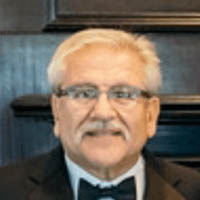Widnoon Misdemeanor Lawyer, Pennsylvania
Sponsored Law Firm
-
 x
x

Click For More Info:
-
Law Office of Mark S. Guralnick
55 Madison Avenue 4th Floor Morristown, NJ 07960» view mapCriminal Defense Law Dedicated. Fearless. Successful.
Mark S. Guralnick and his legal team have helped clients throughout the USA and across the world by applying unparalleled dedication and hard work to each case.
800-399-8371
Not enough matches for Widnoon Misdemeanor lawyer.
Below are all Widnoon Criminal lawyers.
Marc D Daffner
✓ VERIFIEDSince 1993 we have provided service in thousands of legal matters in both state and federal courts. Recipient of numerous awards and distinctions incl... (more)
Joseph Drew Ryan
✓ VERIFIEDJoseph Drew Ryan is a practicing lawyer in Pennsylvania handling criminal defense matters.
Jeffrey S. Weinberg
✓ VERIFIEDJeffrey Weinberg is a practicing lawyer in the state of Pennsylvania. Mr. Weinberg received his J.D. from Duquesne University.
Marvin Leibowitz
✓ VERIFIEDProudly helping Pittsburg with criminal defense, bankruptcy, and medical malpractice cases.
Halstead Morrow
✓ VERIFIEDAttorney Morrow is a practicing lawyer in the state of Pennsylvania.
Sean Thomas Logue
✓ VERIFIEDSean Logue is a diligent attorney who excels at representing people who have been charged with criminal and traffic offenses in Pennsylvania. He const... (more)
Thomas James Michael
✓ VERIFIEDThomas Michael is a practicing lawyer in the state of Pennsylvania. Mr. Michael received his J.D. from the University of Pittsburgh in 2007.
FREE CONSULTATION
CONTACTFREE CONSULTATION
CONTACTFREE CONSULTATION
CONTACT Mark Guralnick Morristown, NJ
Mark Guralnick Morristown, NJ AboutLaw Office of Mark S. Guralnick
AboutLaw Office of Mark S. Guralnick Practice AreasExpertise
Practice AreasExpertise







